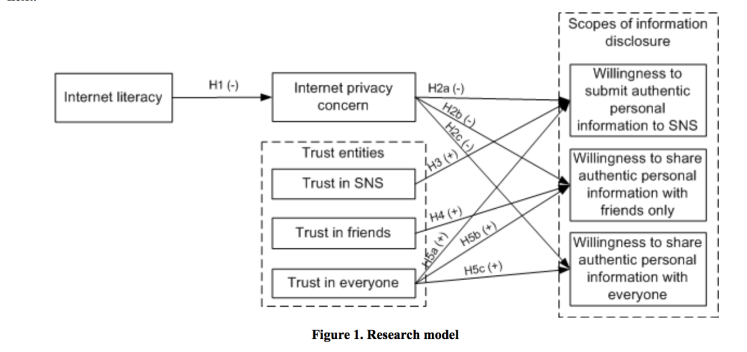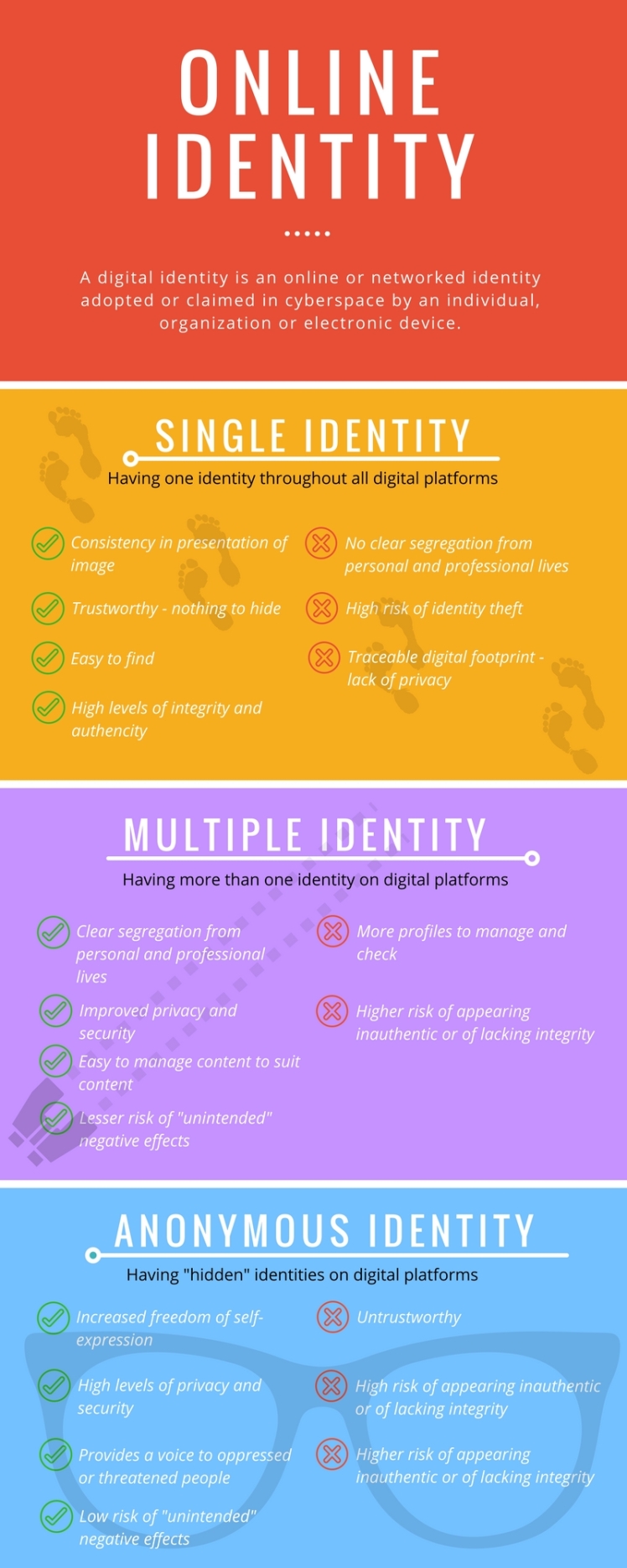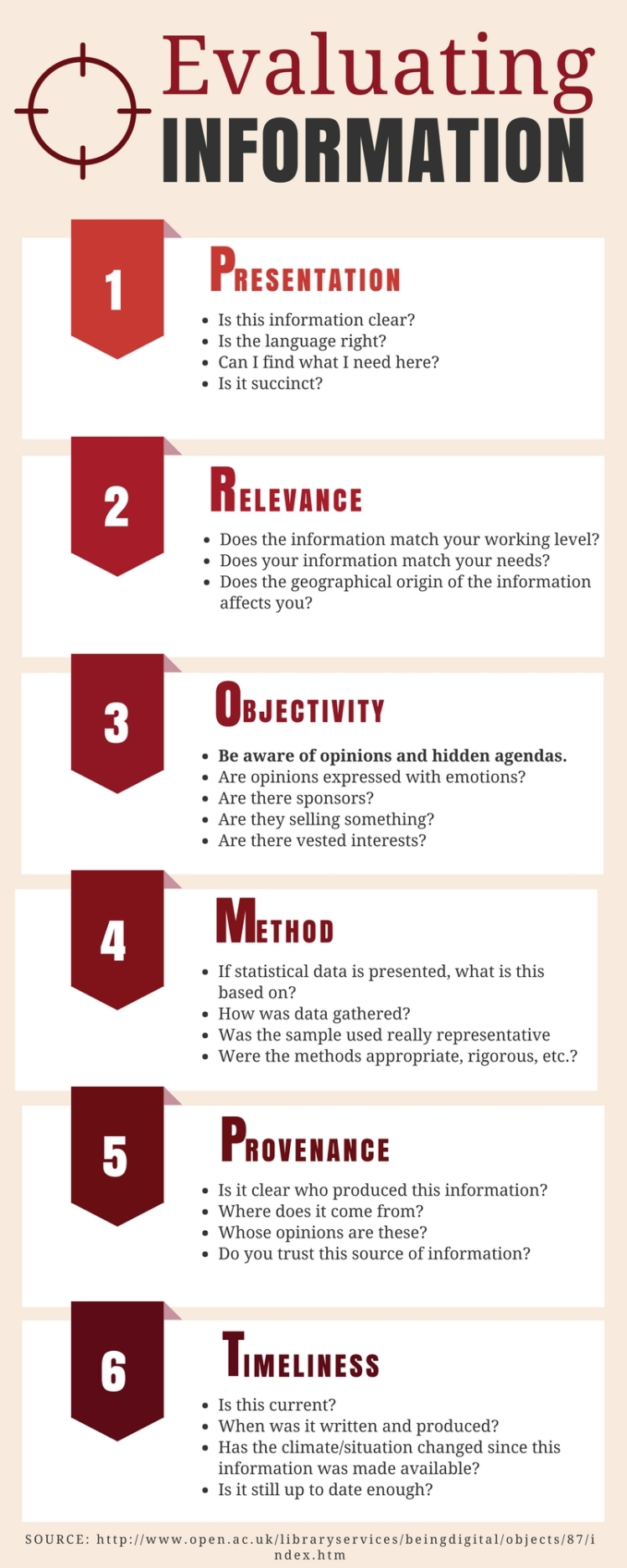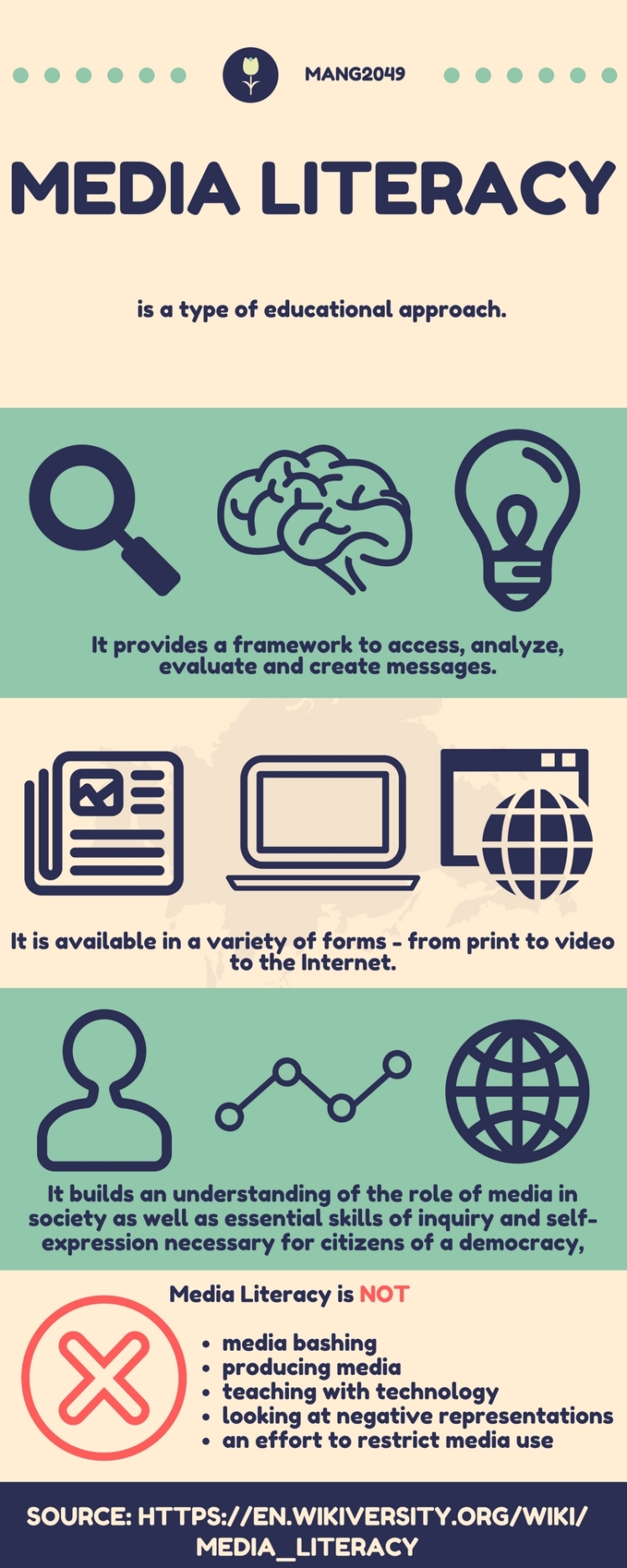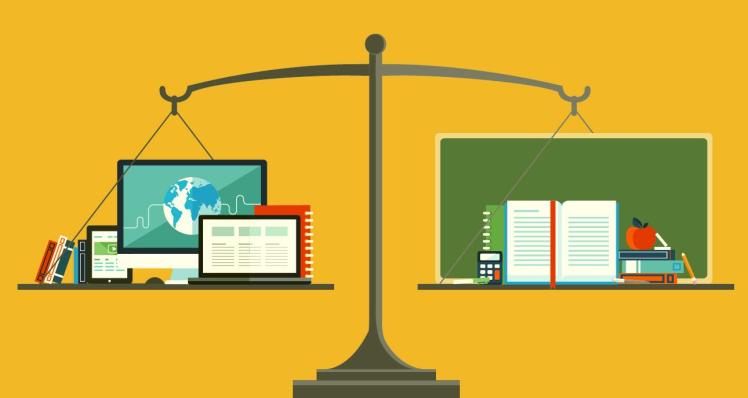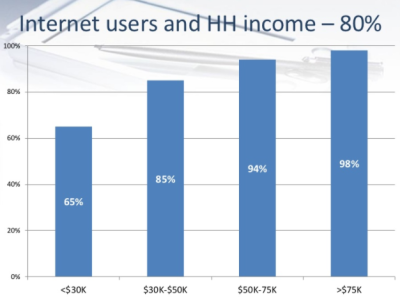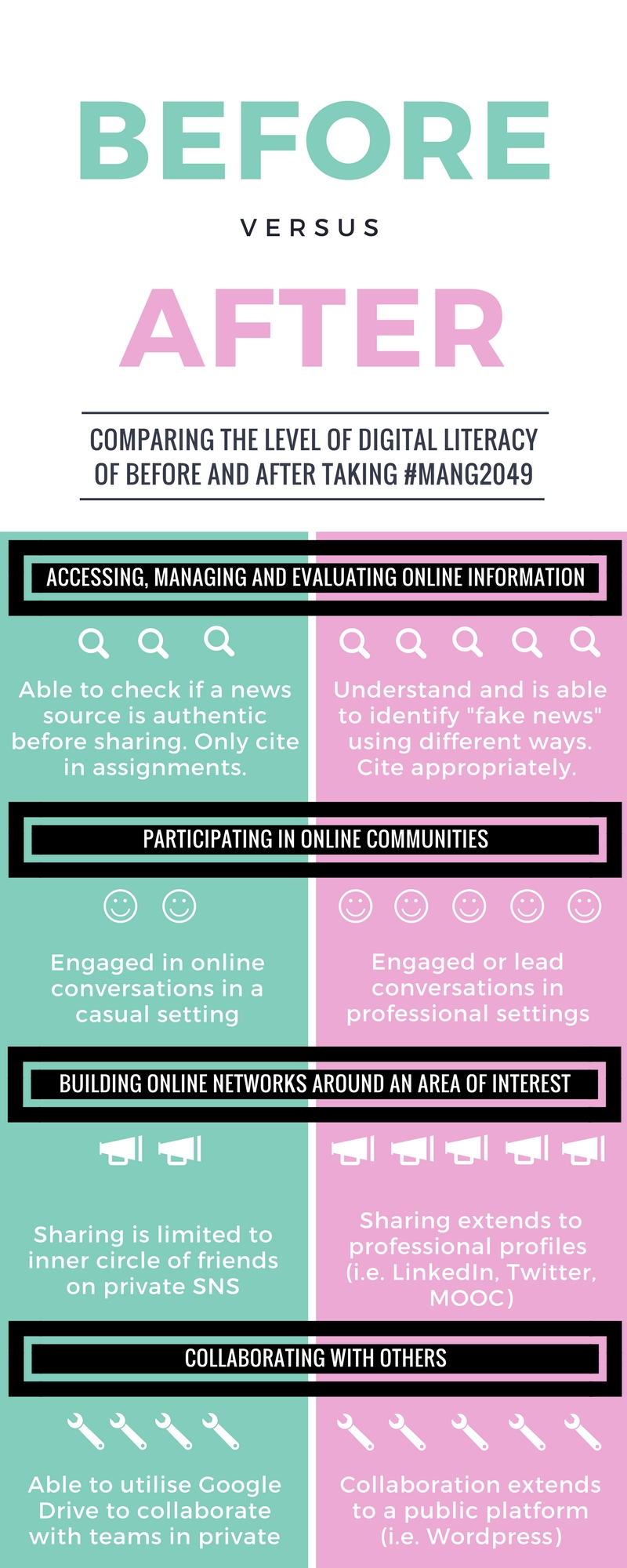
#MANG2049 – What now?
#MANG2049 has come to an end. I thought #MANG2049 would be “easier” and less challenging than learning in the traditional manner. However, as the sessions progress, I find that it gets more challenging – the more I learn, the more my viewschange. I believe that the new knowledge and insights that I garnered will follow me in the years to come.
For the past 12 sessions, we have been discussing online behaviour and actions.
Continue reading →

